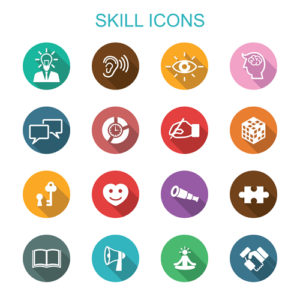As graduation nears for many college students, the job hunt is officially on. And, as if the pressure to land that first gig weren’t high enough, today’s grads are now facing competition from a new quarter: robots. While these bots may not be a physical presence in the office just yet, advanced automation and artificial intelligence (AI) have the potential to take over some—perhaps many—of the jobs that human workers hold today. With automation on the verge of mass adoption across many industries, how can workers make sure they have the skills necessary to keep their jobs, and succeed in them, in the face of automated competition?
The threat is real
According to a recent study commissioned by MindEdge Learning, the threat to existing jobs is real. Nearly half (42 percent) of company managers believe that automation and robotics will lead to a net loss of jobs in their respective industries, while only 18 percent say that automation will help to create jobs.
Our study, which surveyed 1,000 U.S. managers (or those of higher rank) about the rise of robotics and AI in the workplace, found that the level of concern about potential job losses is much higher at companies that have already automated. Fully 52 percent of managers at such companies say their workers are worried about job losses; by contrast, at firms that have not yet adopted automation, a mere 15 percent of managers say their employees are worried about their job security. These findings strongly suggest that employees at non-automated firms are seriously underestimating technology’s eventual threat to their livelihoods.
But it isn’t all bad news. The survey also shows that managers have a clear sense of the type of worker who won’t be supplanted by robotics and advanced automation. So the challenge for new grads and all other job candidates is to become that type of worker. How? It all boils down to having the right combination of skills.
Identifying the skills new grads need…
While many discussions about the future of work focus on hard skills—teachable abilities that are specific to a particular job, such as computer programming or fluency in a foreign language—our survey results illustrate the importance of soft skills in tomorrow’s job market. Soft skills, such as critical thinking and problem solving, are less tangible and harder to quantify than hard skills, but they are every bit as important for new graduates and other job seekers. Indeed, only 20 percent of managers say that hard skills alone are essential to workplace success; the majority say that workers need either soft skills (32 percent), or a combination of hard and soft skills (43 percent), to protect their jobs against encroaching technology. Unfortunately, 40 percent of managers feel their current workers are lacking in both areas.
While managers are looking for improvements in skill levels across-the-board, they believe the two soft skills that will most clearly distinguish humans from robots are creative thinking and critical thinking. Other in-demand skills include communication, decision making, and negotiation skills. These are the abilities that new graduates should highlight or, if necessary, try to strengthen as they head out into the job market.
…and how they can get them
To improve both soft and hard skills, workers need training. Thirty-seven percent of managers in our survey say that internal training or retraining is the most effective way to provide workers with the skills they need to stay employed; continuing education ranks second, at 26 percent. While the need for training and continued learning is clear cut, managers are less clear about who bears the responsibility for providing skills training. About a quarter (27 percent) believe that training is primarily the responsibility of employees, while just 20 percent believe it is primarily the employer’s responsibility. Fifty percent say that skill building is a joint responsibility, shared equally by employees and employers alike
For new graduates, the central takeaway from these findings should be obvious. You need to keep developing your soft and hard skills throughout your career. If your employer won’t help you do that, you must take it upon yourself to find the skills training you need. Your education, after all, does not end at graduation: It’s a lifelong process of continuous improvement that will make you not just a better employee, but a better person.
Plus, it will keep the bots from messing with your job.
- A bungled FAFSA rollout threatens students’ college ambitions - April 19, 2024
- Using real-world tools to prepare students for the workforce - April 18, 2024
- 8 top trends in higher education to watch in 2024 - April 16, 2024

